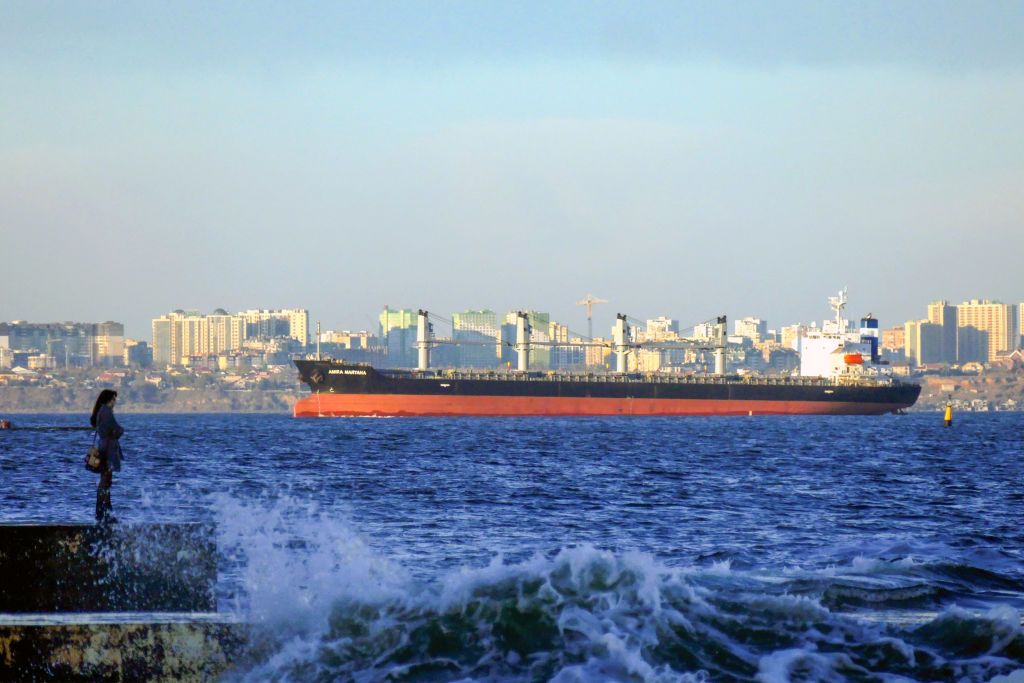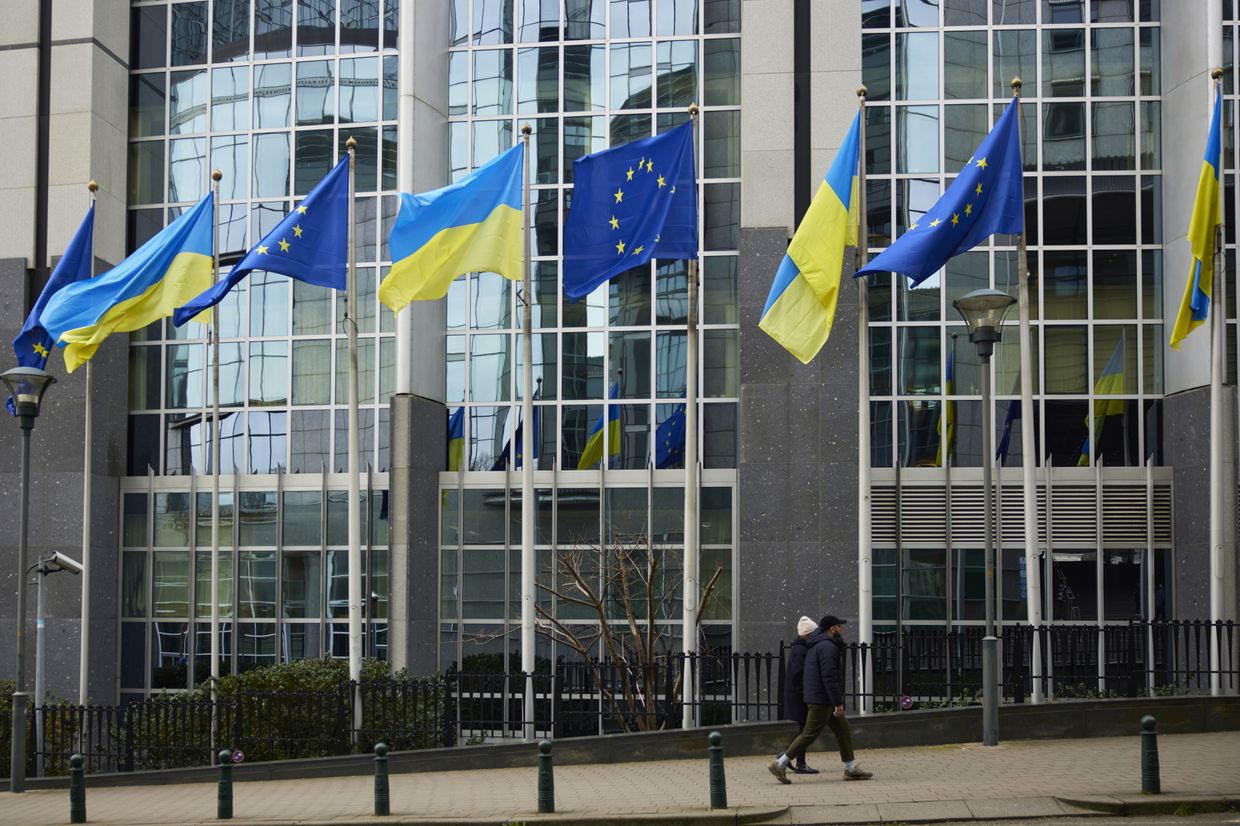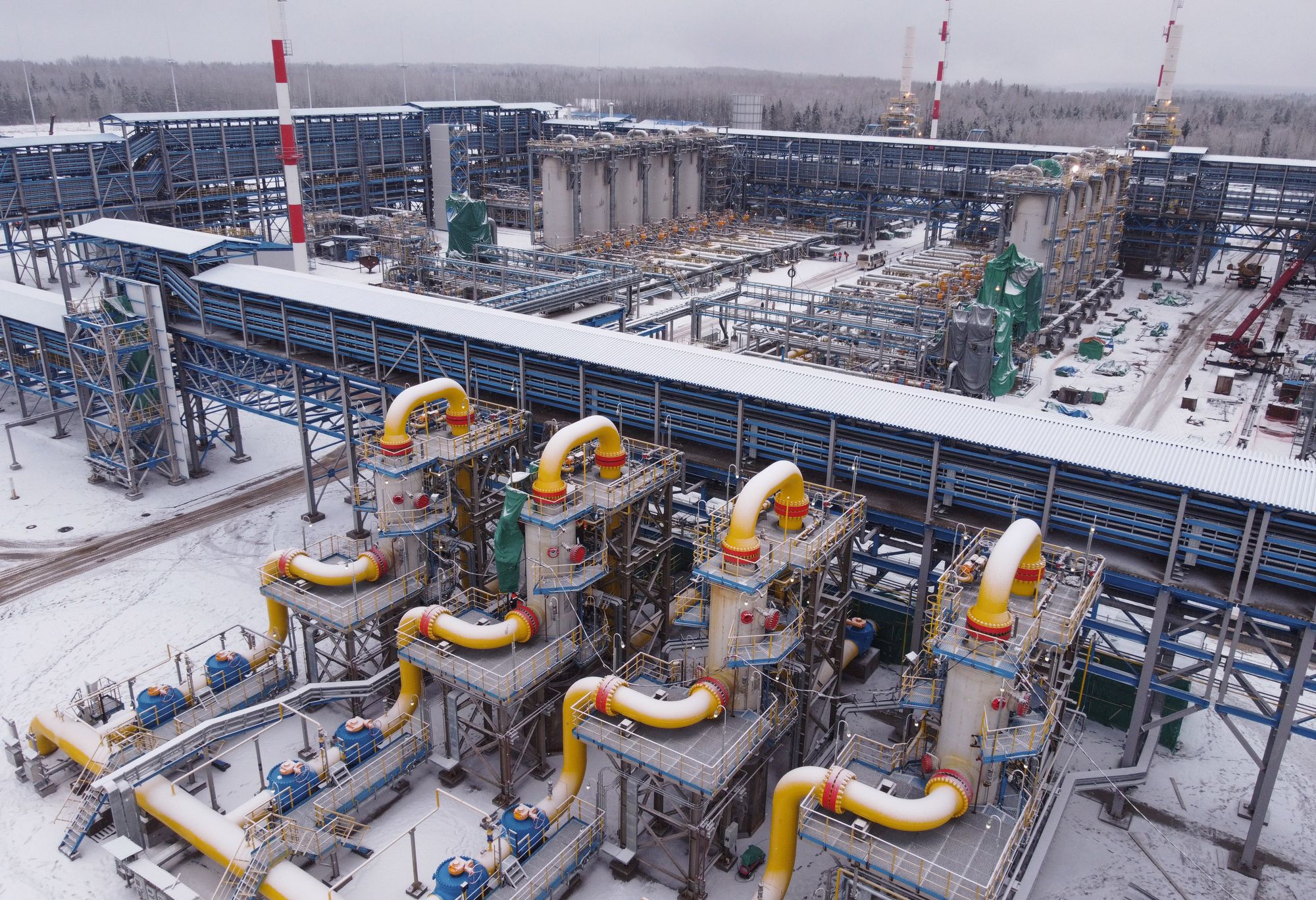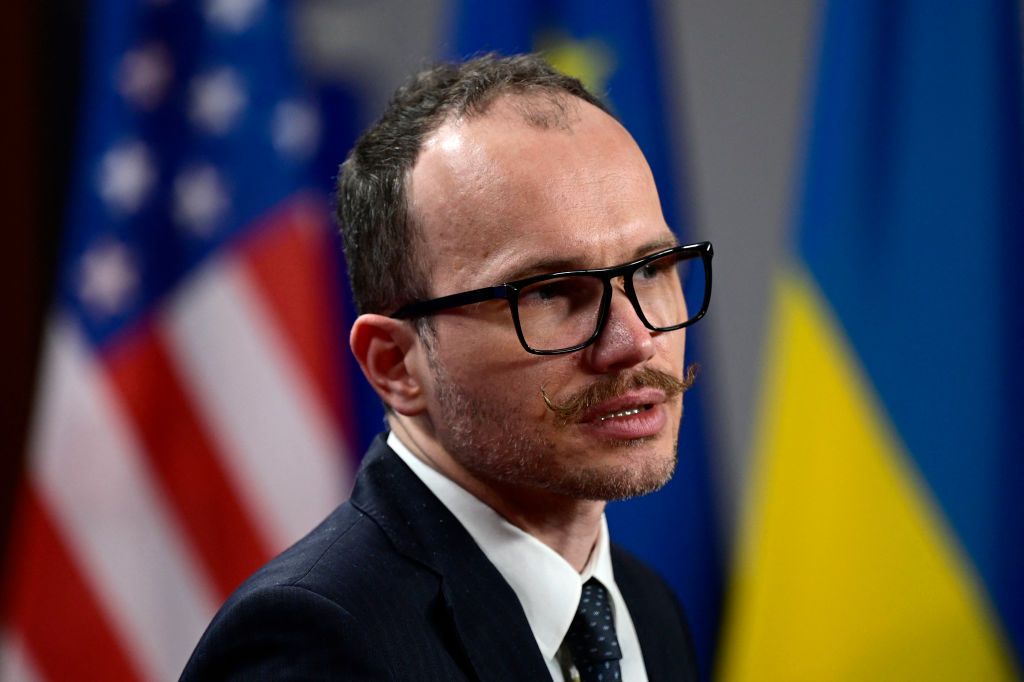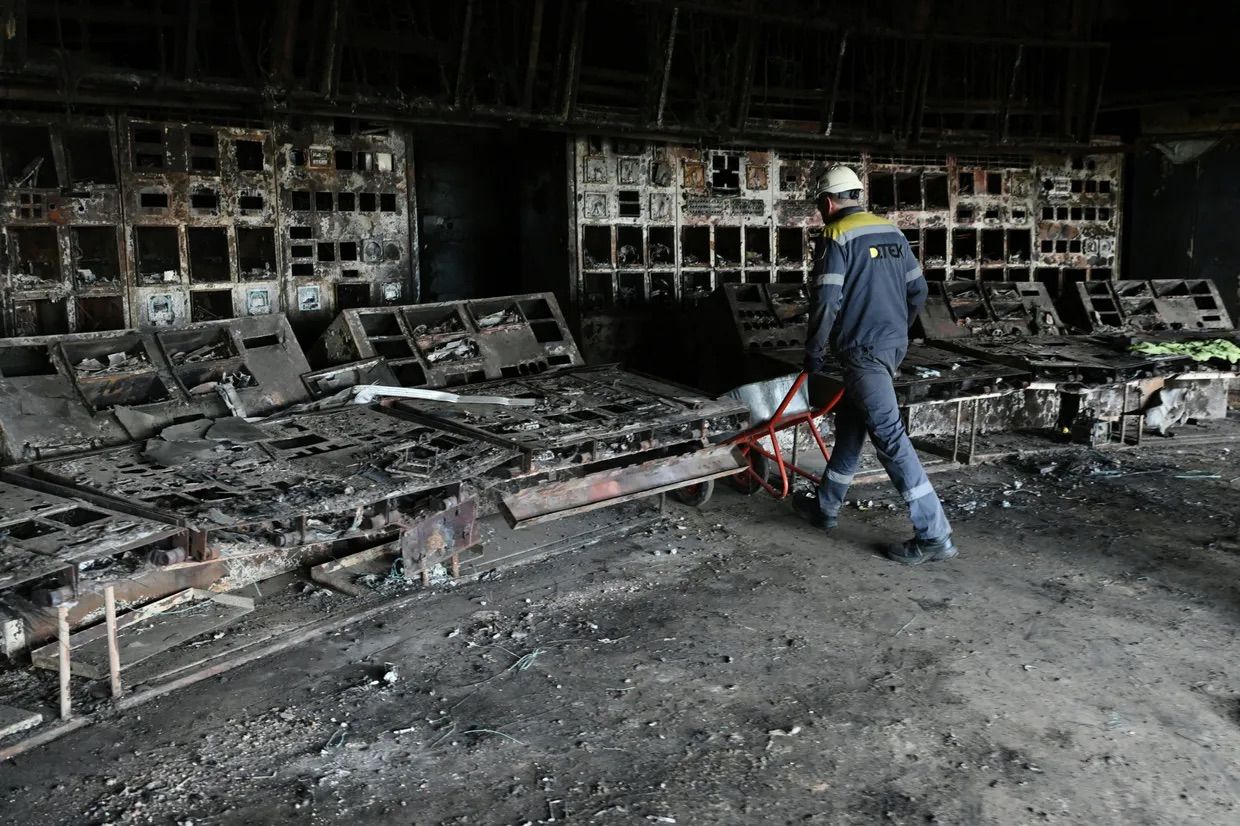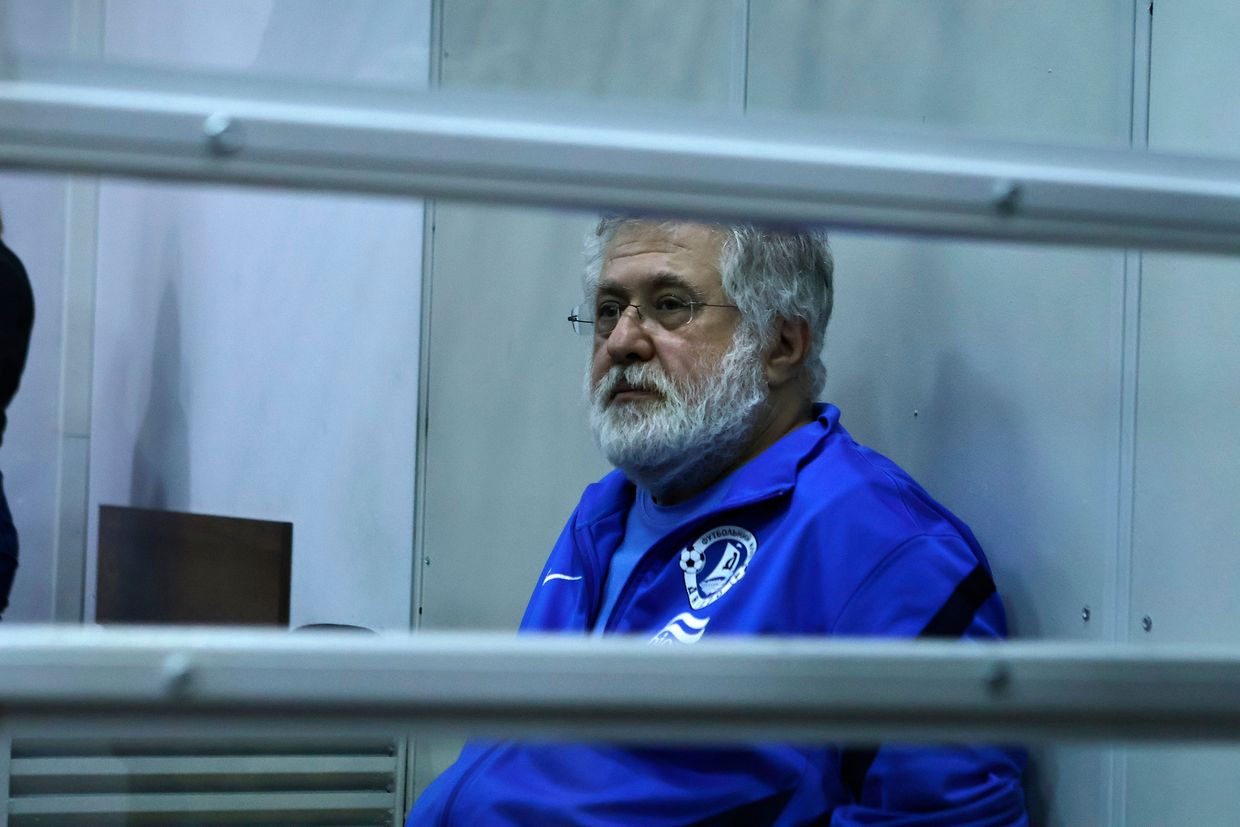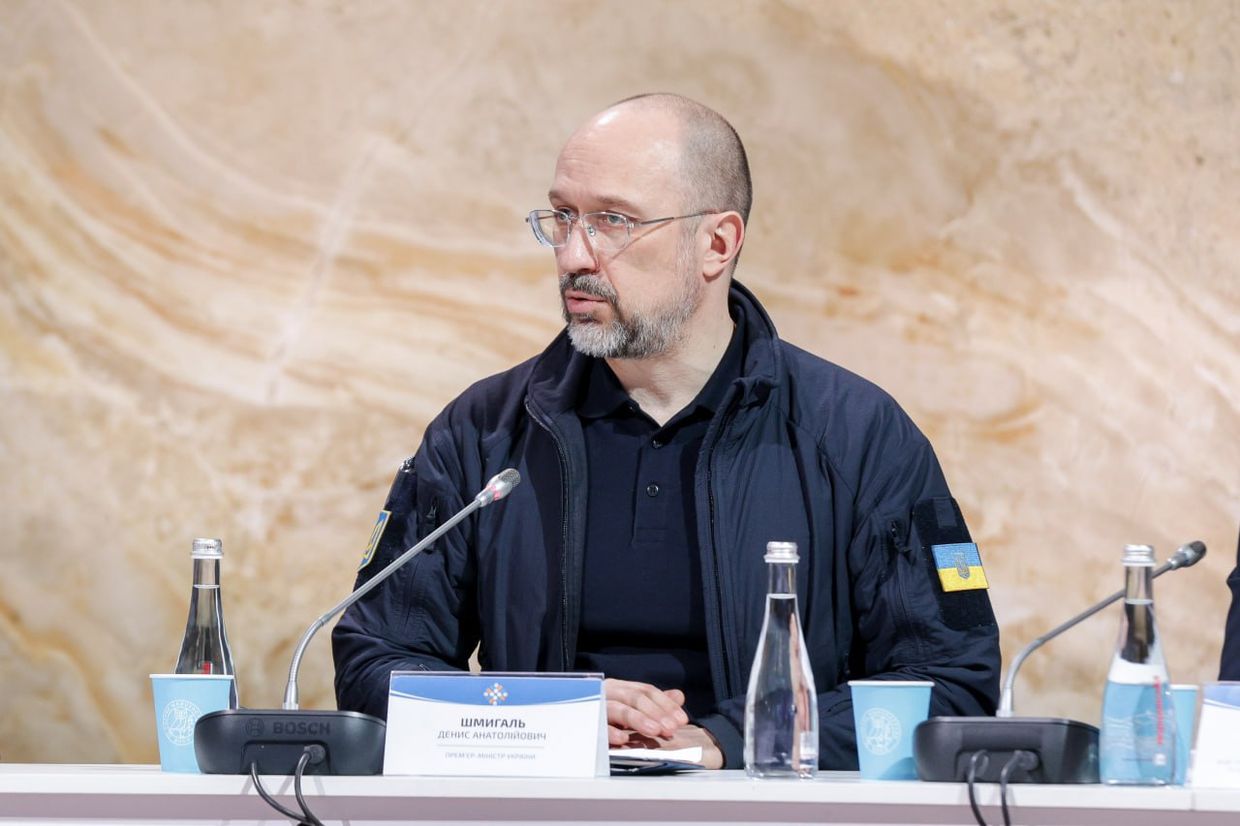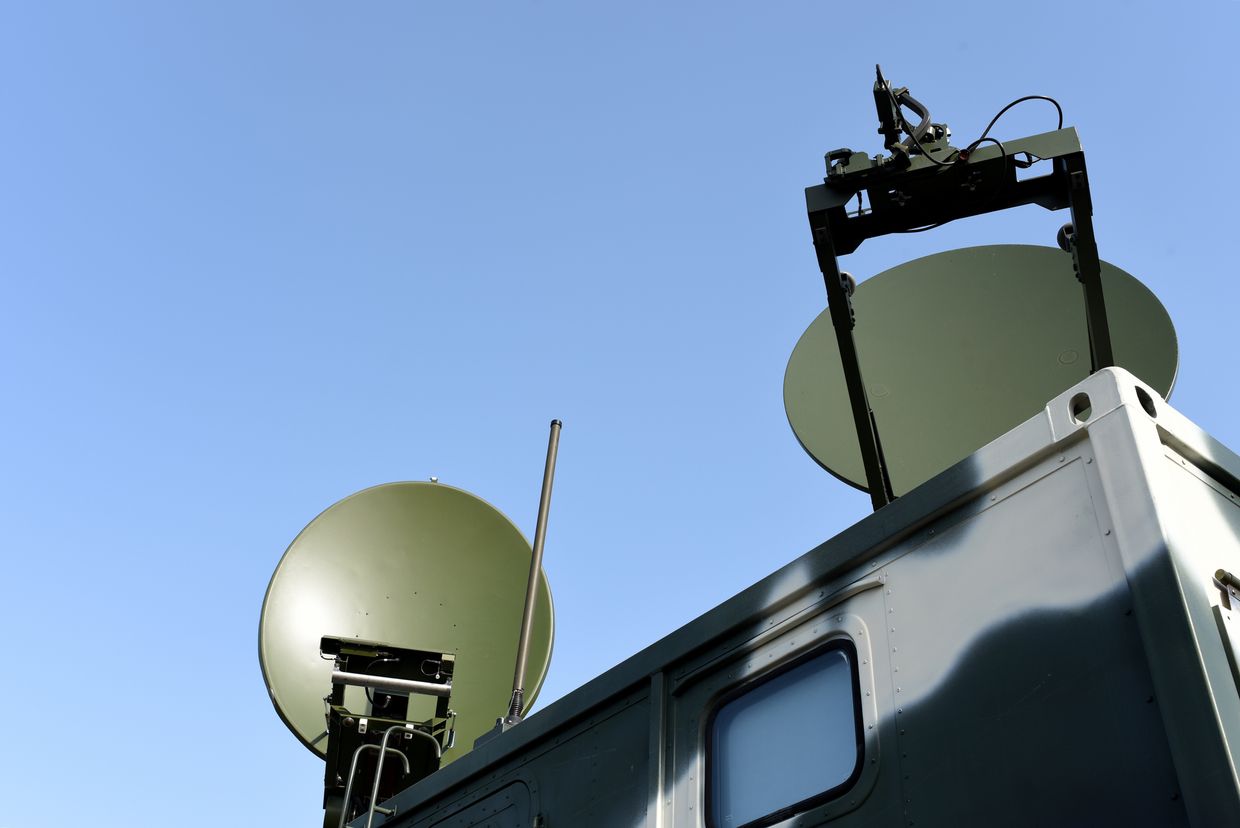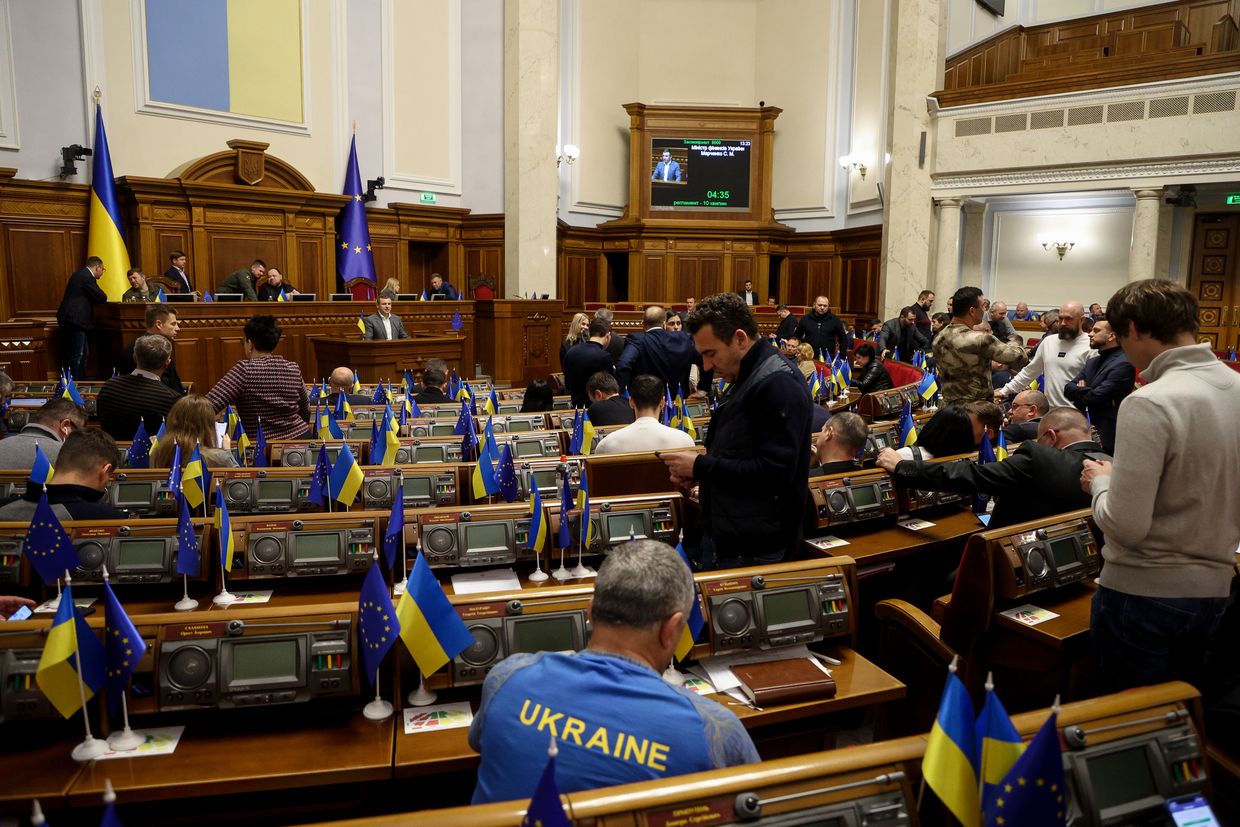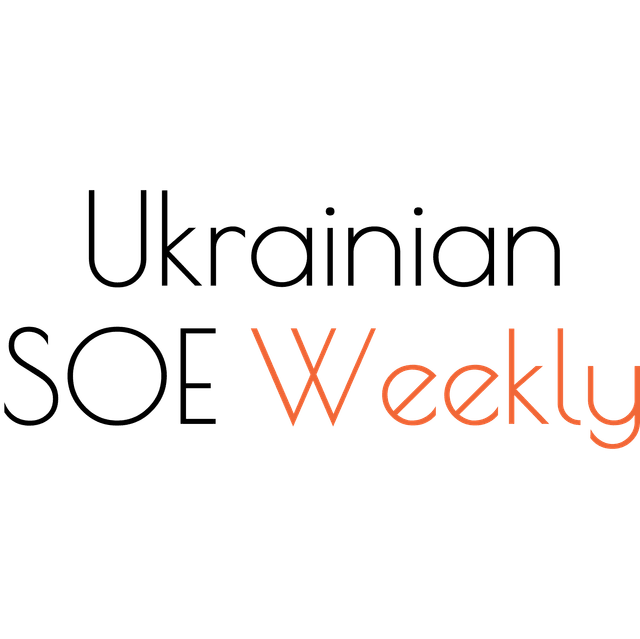Ukraine state-owned enterprises weekly — Issue 131

Editor’s Note: This is issue 131 of Ukrainian State-Owned Enterprises Weekly, covering events from May 4-10, 2024. The Kyiv Independent is reposting it with permission.
Corporate governance of SOEs
Cabinet appoints new acting CEO for Ukrspyrt. On May 3, Stanislav Banchuk was appointed to the position. On May 6, Ukrspyrt confirmed Banchuk’s appointment, with no further details.
Banchuk previously had a legal practice in Kyiv. A person by that name was deputy regional prosecutor of Chernivtsi Oblast until 2014 according to Ekonomichna Pravda (EP).
According to YouControl, Banchuk founded Standart Law Firm LLC, Gaztekhkom LLC, Novitni Energetychni Systemy LLC, P.E.G.O. Trading House, Voga Resources LLC, and SpetsOil LLC, which specialize in oil and gas trading.
On March 1, Vitaliy Koval, head of the State Property Fund of Ukraine (SPFU), wrote that the privatization of distilleries was in the home stretch, with the fund planning to privatize 17 more Ukrspyrt facilities in 2024.
According to Koval, the SPFU had run 115 online auctions of Ukrspyrt assets and 54 auctions had resulted in sales. The sum of prices went from Hr 1.25 billion ($31.5 million) to Hr 3.01 billion ($75.9 million) during the auctions.
As we wrote in January 2022 in Issue 63, acting CEO of Ukrspyrt Serhiy Bleskun resigned. After that, the Cabinet of Ministers temporarily assigned Vitaliy Zhadobin as the new acting CEO.
On Nov. 11, 2022, the Cabinet appointed Ivan Kucherenko as Ukrspyrt’s new acting CEO.
Ukrspyrt last had a permanent CEO in 2014, and the company has since been led by various “acting” CEOs.
Detention order issued for SPFU’s former head who allegedly embezzled millions. On May 8, the High Anti-Corruption Court (HACC) ordered detention for the former head of the SPFU, Dmytro Sennychenko, who is wanted internationally.
According to the Specialized Anti-Corruption Prosecutor’s Office (SAPO), Sennychenko headed a criminal group that embezzled more than Hr 500 million ($12.6 million) from state-owned enterprises, including Odesa Portside Plant (OPZ) and United Mining and Chemical Company (UMCC), and laundered Hr 10 billion ($252 million) in 2019-2021.
As we reported in Issue 80, the National Anti-Corruption Bureau (NABU) and SAPO said that they exposed a criminal group run by Sennychenko in March 2023. See Issue 80 for more detail.
Sennychenko headed the SPFU from September 2019 to February 2022. He filed his resignation letter in November 2021, but the Verkhovna Rada only approved his resignation on Feb. 17, 2022.
As we wrote in Issue 83, the suspects in this case, including Sennychenko, were placed on the wanted list in April 2023.
In November 2023, we wrote that NABU and SAPO updated suspicions against all members of the criminal group allegedly led by Sennychenko. They are now also suspected of legalizing criminal proceeds of over Hr 10 billion ($252 million).
See our Issues 80, 83, and 114 for more detail on this case.
Energy sector
Ukrainian energy facilities struck again. On May 8, the Energy Ministry reported that Russia damaged Ukraine’s energy infrastructure, including transmission facilities in Poltava, Kirovohrad, Zaporizhzhia, Lviv, Ivano-Frankivsk, and Vinnytsia oblasts.
There were no casualties or injuries. Power engineers worked together with the State Emergency Service to eliminate the consequences, the ministry added.
Gas infrastructure in western Ukraine was also damaged.
See SOE Weekly’s Issues 125, 127, and 129 on previous attacks on underground gas storages.
According to Ukrenergo, this is the fifth massive missile and drone strike on energy facilities since March 22.
In addition to damage to generation infrastructure, equipment at one of Ukrenergo’s facilities in central Ukraine was also damaged, the company said.
Due to the power shortages caused by the massive attack, Ukrenergo was forced to impose restrictions on power supply to industry and businesses during evening peak hours.
Ukrenergo also imports electricity from Romania, Slovakia, Poland, Hungary, and Moldova, but according to the company’s CEO Volodymyr Kudrytskyi, this is not enough to cover the deficit.
Rinat Akhmetov’s DTEK, Ukraine’s largest private energy holding, reported that Russia attacked three of its thermal power plants again, severely damaging equipment.
On May 9, Ukrhydroenergo reported that two hydroelectric power plants (HPPs) were out of operation due to the attack. [The company has a total of ten HPPs.
“Today, all hydroelectric power generation has suffered crucial damages. The destroyed equipment requires considerable efforts to repair and restore and significant financial resources,” the company said.
On June 6, Ukrhydroenergo reported that the Kakhovka HPP was destroyed beyond restoration after the Russians set off a massive explosion in the engine room. See our Issue 91 for more detail.
Russian missiles attacked Ukraine’s largest HPP, the Dnipro HPP in Zaporizhzhia, on March 22. See Issue 124 for more detail.
During another missile attack, on March 29, the Kaniv and Dniester HPPs were deliberately targeted by Russian forces. See Issue 125 for more detail.
After every Russian mass missile attack on Ukraine’s vital infrastructure, emergency outages take place, lasting for days due to the ongoing repair works. During such outages, people in Ukraine are often left without electricity, heating, water supply, or access to mobile phone networks.
Ukraine faced the largest Russian missile and drone attack on its energy facilities on March 22. See Issue 124 for more detail.
A week later, Ukrenergo faced yet another Russian missile and drone attack. See more in Issue 125.
On April 11, Ukraine faced the third Russian attack on its energy facilities in one month. The Trypillia Thermal Power Plant (TPP) in Kyiv oblast was destroyed. See Issue 127 for detail.
On April 27, Ukraine faced another Russian attack on its energy infrastructure. See Issue 129 for more.
The Cabinet keeps low electricity tariffs for households until the end of May 2024. On April 26, the Cabinet of Ministers extended public service obligations (PSOs) for another month, from April 30 – May 31. The price for households will remain Hr 2.64 ($0.07) per kWh.
Energoatom and Ukrhydroenergo were granted the right to sell electricity on market terms from Oct. 1, 2021. Under the new PSO model, the proceeds were used to compensate electricity providers for the difference between the regulated household tariffs (at that time, Hr 1.44/kWh and Hr 1.68/kWh depending on the volume of consumption) and market prices.
Since October 2021, the Cabinet of Ministers has repeatedly extended the PSO mechanism to keep electricity tariffs for households unchanged until the end of the previous heating season. The PSO mechanism was in place until April 30, 2023.
On May 30, 2023, the Cabinet approved an increase in the electricity tariff for households to Hr 2.64/kWh from June 1, 2023.
As we reported in Issue 115, in January, the PSO model had been extended until April 30. The government made this decision to reduce the financial burden on households due to the difficult economic situation caused by the full-scale war. As a result, the electricity price for households would continue to be Hr 2.64 per kWh.
According to Deputy Energy Minister Svitlana Hrynchuk, the Cabinet of Ministers is discussing the possibility of raising electricity tariffs, as resources are needed for the next heating season. No decision has been made yet, she said.
As we reported in our earlier issues, the low electricity tariff has consistently caused financial challenges for Ukrainian energy SOEs:
- Electricity market had a chain of debts of “everyone to everyone” worth Hr 60 billion ($1.5 billion). (See Issue 110.)
- After accumulating large debts due to losing the Zaporizhzhia Nuclear Power Plant, Energoatom has only been able to fulfill all PSOs again since September 2023 (see Issue 109). The company paid Hr 1.8 billion ($45 million) it owed to Ukrenergo for dispatch control services in November 2023 (see Issue 113) and reported in January that it had fully fulfilled its PSO obligations for 2023 (see Issue 115).
- Ukrhydroenergo finished paying for all household PSOs for 2023, the company said in late January. See Issue 116 for more detail.
As we wrote in April, Naftogaz left the current gas tariff for households unchanged for at least another year. See Issue 129 for detail.
Ukrenergo reports a Hr 400 million profit in 2023 (audited); financial statements on the LSE website. On May 3, Ukrenergo reported its financial results for 2023, ending the year with a revenue of Hr 83 billion ($2.1 billion).
The company’s financial statements, including the independent auditor’s report, were published on the website of the London Stock Exchange (LSE).
On May 10, the company also held a briefing where CEO Volodymyr Kudrytskyi commented on Ukrenergo’s key indicators in 2023.
The company made a profit of Hr 377 million ($9.5 million) in 2023. In 2022, Ukrenergo posted a loss of Hr 6 billion ($151 million)
Despite the Russian shelling of the infrastructure and the difficult situation in the energy system, the value of Ukrenergo’s assets increased by almost Hr 45 billion ($1.1 billion), Kudrytskyi said.
In addition, the company paid Hr 2.4 billion ($60 million) in taxes and dividends to the state in 2023.
Kudrytskyi also said that the company paid off Hr 24 billion ($605 million) in debts in 2023 and the first quarter of 2024.
As we wrote in November 2023, the electricity market had a chain of debts of “everyone to everyone” worth Hr 60 billion ($1.5 billion). See Issue 110 for more detail.
German government grants 45 million euros ($48.7 million) to restore and protect energy infrastructure. On May 9, Ukrenergo signed an agreement with the German Development Bank KfW.
According to Ukrenergo’s CEO Volodymyr Kudrytskyi, this will pay for a high-voltage line that will increase the stability of Ukraine’s connection to the European grid. The aid will also pay for high-voltage equipment and restoring facilities in central Ukraine after Russian attacks.
In total, with KfW’s support, Ukrenergo has attracted more than 177 million euros ($191 million) in loans and grants for the restoration and development of the electricity transmission network since Russia’s invasion, the company added.
As we reported in Issue 128, Ukrenergo received nearly 1 million euros ($1.1 million) worth of energy equipment from German partners.
Naftogaz Group says its 2023 audited net profit is Hr 23 billion; financial statements not yet available. On May 7, Naftogaz Group reported that it made Hr 23.1 billion ($583 million) in consolidated net profit in 2023, a significant rebound from its Hr 79.1 billion ($1.9 billion) loss in 2022.
The company said that its consolidated financial statements were confirmed by an independent auditor, approved by the supervisory board on May 3, and sent to the Cabinet for approval.
The financial statements were not publicly available at the time of writing.
Note that the law on the functioning of the financial sector during martial law allows, in particular, joint-stock companies not to publish financial statements.
In pursuance of this law, the National Securities and Stock Market Commission (NSSMC), as a regulator, adopted a decision according to which joint-stock companies must disclose their annual and interim information (which includes financial statements) for 2021-2023 during 90 days after the end of martial law.
Until this provision of the above law is lifted, state-owned joint-stock companies, such as Naftogaz, Ukrnafta, and others, will have a legal ground not to disclose their financial statements.
Under normal circumstances, according to the NSSMC’s disclosure regulation, joint-stock companies must disclose annual financial statements for 2023 as part of their annual disclosure by April 30.
At the same time, the law does not prevent such disclosure (including financial statements) by SOEs, as this would be customarily done in best corporate governance practice.
We are not aware of any objective reasons, including those related to martial law, for the above exemption to continue to exist. The lack of annual reports leads to opaqueness of SOEs, including making it impossible to analyze or understand their performance.
When SOEs or their management report selected financial indicators or trends, no objective analysis of such reports or SOEs’ performance altogether is possible.
Countries with developed capital markets have rules regulating the disclosure of sensitive (insider) information by public companies. Among other things, shareholders, other investors, or the public may not be misled by selective or delayed disclosure of such information.
The profitability of the business lines was driven by significantly improved financial results of the Group’s companies, Naftogaz added without providing any details.
The company also said that most of the profit will go into dividends to the state. The Cabinet set the individual dividend pay-out ratio for Naftogaz at 95%. See SOE Weekly’s Issue 118.
It is also unclear whether or how Ukrnafta’s financial performance is incorporated in Naftogaz’s financial statements.
As we reported in Issue 121, Ukrnafta is to pay the state a total of Hr 8 billion ($202 million) in dividends for 2023. Ukrnafta’s audited financial statements for 2022 or 2023 were also not available at the time of writing.
Meanwhile, the former CEO of the Gas Transmission System Operator of Ukraine (GTSOU) Serhiy Makogon questioned the data. He said that buffer gas was Naftogaz’s major source of profit in the first six months of 2023, according to the company’s (unaudited) reporting for that period.
Apparently, this means that Naftogaz was now able to sell the buffer gas from underground storages, which it could not sell earlier.
Buffer gas is the volume of gas that is necessary to ensure the stable operation of underground storages, including maintaining the necessary pressure that allows normal gas take-off.
Naftogaz CEO interviewed. Naftogaz CEO Oleksiy Chernyshov spoke to Forbes Ukraine this week. We selected key segments:
On Naftogaz’s financial performance in 2023 and forecasts for 2024:
- “Naftogaz Group’s consolidated profit for 2023 is Hr 23 billion ($579 million). In 2022, losses amounted to Hr 79 billion ($1.9 million). This means that the result has changed by more than Hr 100 billion ($2.5 billion) over this period. Ukrnafta played an important role in this: Its profit was over Hr 20 billion ($504 million).”
As we reported in Issue 126, Ukrnafta earned almost Hr 24 billion ($605 million) in net profit in 2023.
- “The group’s companies would transfer dividends to Naftogaz: Ukrgazvydobuvannya – Hr 12.3 billion ($310 million), Ukrtransgaz – Hr 6.6 billion ($166 million), Ukrtransnafta – Hr 5.3 billion ($134 million), and Ukrnafta – Hr 3.5 billion ($88 million).”
It is unclear how Ukrnafta’s dividends would be paid to the state and Naftogaz; see previous item.
- “What influenced the change in financial performance? Increase in revenue from sales of products, in particular, Ukrnafta; increase in gas production by Ukrgazvydobuvannya, reduction in production costs, etc. No gas import costs. Last year’s grants, including the so-called Norwegian grant. Changes in the provisioning for bad debts. Exchange rate differences, etc.”
- “This year, we will continue to increase gas and oil production. The target is 15 billion cubic meters of gas and about 2 million metric tons of oil. This gas will be enough to cover Ukraine’s needs in the regulated segments.”
On underground gas storages:
- “Currently, there are more than 8 billion cubic meters of gas in underground storages. At the start of the heating season, we need to have at least 13 billion cubic meters. In case we need to create an insurance reserve, we can use the EBRD’s emergency credit line program.”
Infrastructure
Ukrzaliznytsia’s civilian infrastructure in Kherson was shelled by Russians, the company reported on May 8.
As a result of the attack, the tracks at Kherson railway station were damaged, and the movement of Train No. 121/122 (Kyiv–Kherson–Kyiv) was temporarily restricted. Later that day, railway workers completed repairs to the track damaged by the shelling, the company said.
As we reported earlier, Ukrzaliznytsia’s civilian infrastructure in and around Dnipro was also shelled by Russian troops on April 19. See Issue 128 for more detail.
Privatization
Confiscated PentoPack Plant up for auction at Hr 203 million ($5.1 million), the State Property Fund’s (SPFU) press office reported on May 6. It was confiscated from Russian-Greek businessman Ivan Savvidi.
The online auction is scheduled for May 31.
According to the SPFU, PentoPack is one of the leading producers of packaging for meats and sausages. It produces multilayer synthetic shrink wrap using modern technologies, including printing with UV, water, and alcohol inks.
PentoPack’s products are used in more than thirty countries around the world. In Ukraine, the company does business with Rud, Globino, and Myasna Gildiya.
PentoPack retained 193 jobs and has no wage or state budget arrears. The company plans to enter new markets for packaging materials for the dairy industry, fish processing, and animal feed packaging, the SPFU added.
“This is an extremely attractive investment asset. It is not just about production facilities, but about a well-established profitable business in a promising segment of the food industry. The new owner would have all the opportunities for further growth and development,” SPFU head Vitaliy Koval said.
As we reported in Issue 122, the SPFU declared its privatization plans for PentoPack in early March.
Confiscation of Russian assets, nationalization, and asset seizure
Ukrnafta and ARMA seek permission to manage Tatneft’s assets. On May 6, Ukrnafta and the Asset Recovery and Management Agency (ARMA), applied for a merger clearance to manage Russian Tatneft Group’s assets in Poltava and Kharkiv oblasts. These include petrol stations, oil depots, and other commercial property – a total of 110 units.
Most of them are in rundown condition, and some petrol stations have been destroyed, and they need to be rebuilt from scratch, Ukrnafta said. As of today, about 15 of the 70 Tatneft petrol stations are operational. The situation is similar with idle oil depots, Ukrnafta added.
ARMA declared its plans to transfer Tatneft filling stations to Ukrnafta’s management ten months ago (see Issue 99), and the Cabinet transferred them on Aug. 15, 2023 (see Issue 100).
It is unclear why ARMA and Ukrnafta had not applied for merger clearance earlier, and how the assets have been maintained in the meantime.
Ukrnafta said that it would assess these assets on a case-by-case basis to calculate the required level of investment and the timing of their return.
ARMA and Ukrnafta are finalizing the asset management agreement.
As we reported earlier, Ukrnafta also manages the assets of the Glusco group. On March 14, the Antimonopoly Committee of Ukraine allowed Ukrnafta to take over the management of Glusco’s assets – see Issue 123. On March 15, Ukrnafta and ARMA said that they signed acts of acceptance for the transfer of Glusco assets – see Issue 124.
For more detail, see our Issues 99, 100, 102, 117, 123, and 124.
Ukrainian SOE Weekly is an independent weekly digest based on a compilation of the most important news related to state-owned enterprises (SOEs) and state-owned banks in Ukraine. The contents of this publication are the sole responsibility of the editorial team of the Ukrainian SOE Weekly. The SOE Weekly is produced and financed by Andriy Boytsun. Communications support is provided and financed by CFC Big Ideas. The SOE Weekly is not financed or influenced by any external party. Editorial team: Andriy Boytsun, Oleksiy Pavlysh, Dmytro Yablonovskyi, Oleksandr Lysenko, and Mariia Kramar.


